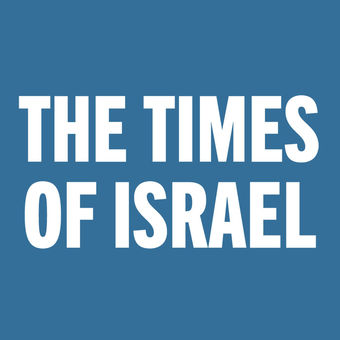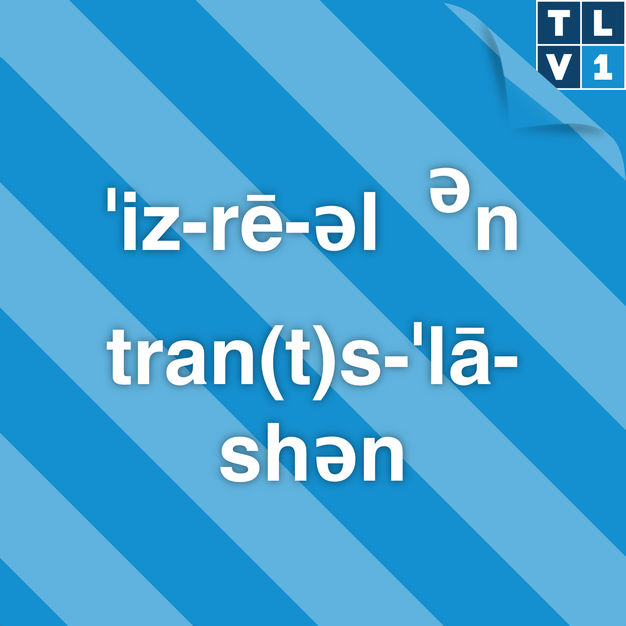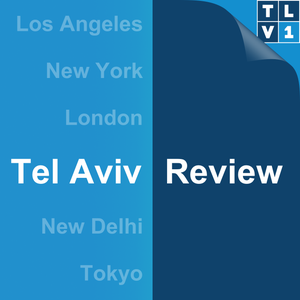
Times of Israel Podcast
Times of Israel Podcast
The podcast platform of The Times of Israel. Covering developments in Israel, the Middle East and around the Jewish world.
- 27 minutes 47 secondsWhat Matters Now to Haviv Rettig Gur: Hamas's survival is Gaza's tragedy
Welcome to What Matters Now, a weekly podcast exploring key issues currently shaping Israel and the Jewish World, with host deputy editor Amanda Borschel-Dan speaking with The Times of Israel's senior analyst, Haviv Rettig Gur.
When this podcast conversation was recorded, the deal between Israel and Hamas for a hostage release and temporary ceasefire in Gaza had not actually been signed and sealed. Despite jubilant announcements by mediators on Wednesday night, by Thursday morning, claims of last-minute demands from Hamas had prevented a formal announcement.
Whether or not the deal will go through, Prime Minister Benjamin Netanyahu's new flexibility on several previously immovable points is noteworthy.
In our conversation, Rettig Gur postulates that there’s a reason Netanyahu seems to be struggling to speak clearly to his coalition partners and the electorate about his reasons for supporting the deal — and about what’s going on in the talks. Much of it may have to do with a potentially watershed moment -- the Trump inauguration on January 20 -- or maybe there is a secret second deal that Trump is already forwarding.
Hamas's very survival is its victory, acknowledges Rettig Gur, who mourns the tragic fate that awaits Gazans as the agents of destruction again return to power.
So this week, we ask Haviv Rettig Gur: What matters now?
What Matters Now podcasts are available for download on Apple Podcasts, Spotify, YouTube or wherever you get your podcasts. This episode was produced by the Pod-Waves.
IMAGE: People celebrate along a street in Khan Yunis in the southern Gaza Strip on January 15, 2025, as news spread that a ceasefire and hostage release deal had been reached between Israel and Hamas, aimed at ending more than 15 months of war in the Palestinian territory. (BASHAR TALEB / AFP)
See omnystudio.com/listener for privacy information.
16 January 2025, 7:12 pm - 41 minutes 12 secondsWhat Matters Now to Haviv Rettig Gur: Israel's wishlist for US president-elect Trump
Welcome to What Matters Now, a weekly podcast exploring key issues currently shaping Israel and the Jewish World, with host deputy editor Amanda Borschel-Dan speaking with The Times of Israel's senior analyst, Haviv Rettig Gur.
This week, a committee appointed by Prime Minister Benjamin Netanyahu to examine defense spending and IDF military force design for the future announced that the election of Donald Trump as US president offers an unprecedented opportunity to remove the threat Israel faces from Iran.the
Trump’s return to the White House, said the Nagel Committee on Monday, “creates, for the first time, the potential for a fundamental change, and the removal or meaningful reduction of the Iranian threat.”
Likewise this week, the incoming US envoy to the Middle East Steve Witkoff announced that he would travel to Doha, saying a hostage deal being mediated by Qatar is on the verge of completion, as US President-elect Donald Trump again warned “all hell will break loose” in the region if an agreement between Israel and Hamas is not reached by his January 20 inauguration.
We all know that Trump is one to talk tough, but the question is -- how much of this rhetoric will translate into action? And will he aid Israel in its aid to prevent a nuclear Iran?
So this week, we ask Haviv Rettig Gur: What matters now?
What Matters Now podcasts are available for download on Apple Podcasts, Spotify, YouTube or wherever you get your podcasts. This episode was produced by the Pod-Waves.
IMAGE: US President Donald Trump (left) and Israeli Prime Minister Benjamin Netanyahu shake hands at the Israel Museum in Jerusalem, May 23, 2017. (AP Photo/Sebastian Scheiner, File)
See omnystudio.com/listener for privacy information.
9 January 2025, 12:12 pm - 31 minutes 30 secondsWhat Matters Now to David Horovitz: Freedom of the press under attack
Welcome to What Matters Now, a weekly podcast exploring key issues currently shaping Israel and the Jewish World, with host deputy editor Amanda Borschel-Dan speaking with The Times of Israel's founding editor David Horovitz.
Five years ago this week, The Times of Israel launched its Daily Briefing podcast to keep listeners updated on the latest news out of Israel and the region, from Sunday through Thursday. Starting from October 7, 2023, the podcast has moved to seven days a week in an effort to broadcast fair and accurate news from Israel during wartime. We discuss the locations of some of the podcast's more unusual listenership.
Horovitz delves into ongoing efforts on the part of the government to limit the freedom of the press, from the banning of Al Jazeera to halting paid ads in Haaretz. He explains the "gentleman's agreement" that is the nature of the relationship of Israeli press with the military censor -- and how frustrating it can be.
We learn about the inescapable blindsides in reporting this war that see unverifiable narratives out of Gaza be taken as truths, and how dangerous this situation is.
So this week, we ask editor David Horovitz, what matters now.
What Matters Now podcasts are available for download on Apple Podcasts, Spotify, YouTube or wherever you get your podcasts. This episode was produced by the Pod-Waves.
IMAGE: Newspapers and magazines for sale at a shop in the center of Jerusalem. November 10, 2013. (Nati Shohat/FLASH90)
See omnystudio.com/listener for privacy information.
2 January 2025, 4:07 pm - 35 minutes 13 secondsWhat Matters Now to comedian Yochay Sponder: Post-Oct. 7 truth -- with laughs
Welcome to What Matters Now, a weekly podcast exploring key issues currently shaping Israel and the Jewish World, with host deputy editor Amanda Borschel-Dan speaking with stand-up comedian Yochay Sponder.
After the 2012 Gaza War, the comedian began using his talent to make people laugh as a tool for pro-Israel advocacy in his heavily Hebrew-flavored English. This work has only ramped up since the October 7, 2023, murderous Hamas onslaught, where thousands of terrorists infiltrated southern Israel, killing 1,200 and taking another 251 hostage to Gaza.
Initially after the attack, Sponder, whose soldier cousin fell in battle on October 7, thought it may be inappropriate to take to the stage and make people laugh. Today, he considers it his reserve duty and Sponder uses his brand of truth-telling to remind the world who started this ongoing war and that Israelis still hope for peace.
With a personal genetic background that would put a Benetton poster to shame, Sponder uses a brusque uber-Israeli persona to counter politically correct norms and spotlight hypocrisy.
Sponder has toured his English-language show, "Self-Loving Jew," extensively this year. In our conversation, he discusses a performance in the United States in which a group of pro-Palestine activists showed up. The result was not what he expected.
So this week, we ask Israeli comedian Yochay Sponder, what matters now.
What Matters Now podcasts are available for download on Apple Podcasts, Spotify, YouTube or wherever you get your podcasts. This episode was produced by the Pod-Waves.
Check out the previous What Matters Now episode:
https://omny.fm/shows/times-will-tell/wmn-what-matters-now-to-andrew-fox-cynical-use-of
IMAGE: Stand-up comedian/Israel advocate Yochay Sponder. (Limor Azran Garfinkle)
See omnystudio.com/listener for privacy information.
26 December 2024, 2:54 pm - 29 minutes 39 secondsWhat Matters Now to Andrew Fox: Cynical use of inflated death figures from Gaza
Welcome to What Matters Now, a weekly podcast exploring key issues currently shaping Israel and the Jewish World, with host deputy editor Amanda Borschel-Dan speaking with Andrew Fox.
Fox, a research fellow at the Henry Jackson Society, served in the British Army from 2005 to 2021, completing three tours in Afghanistan, including one attached to the US Army Special Forces. At the transatlantic think tank, he specializes in Defense, the Middle East, and disinformation. He holds degrees in Law and Politics, Modern War Studies and Psychology.
This week, Fox and a team of researchers published a report that made international headlines titled, "Questionable Counting: Analysing the Death Toll from the Hamas-Run Ministry of Health in Gaza."
According to the report, the Palestinian death toll for the Gaza war appears to include thousands of people who died of natural causes as well as incorrect figures — partly in an effort to inflate the toll of women and children.
Worse, international media outlets are too quick to accept the figures from terror group Hamas -- usually without the scrutiny and rigor that are applied when reporting numbers supplied by Israel. The Hamas-run Health Ministry's figures, the report claims, are being manipulated for propaganda needs.
The Gaza health ministry, under Hamas, “has systematically inflated the death toll by failing to distinguish between civilian and combatant deaths, over-reporting fatalities among women and children and even including individuals who died before the conflict began,” the report said.
We discuss the report and hear Fox's assessment of how the IDF's operations in Gaza have played out, as well as the one arena Israel has neglected -- the fight for world opinion.
So this week, we ask London-based defense analyst Andrew Fox, what matters now.
What Matters Now podcasts are available for download on Apple Podcasts, Spotify, YouTube or wherever you get your podcasts. This episode was produced by the Pod-Waves.
IMAGE: The IDF operates in the southern Gaza Strip's Rafah in this hand out image from December 16, 2024. (IDF)
See omnystudio.com/listener for privacy information.
19 December 2024, 4:02 pm - 28 minutes 9 secondsWhat Matters Now to Ksenia Svetlova: Women are the canary in the Mideast coal mine
Welcome to What Matters Now, a weekly podcast exploring key issues currently shaping Israel and the Jewish World, with host deputy editor Amanda Borschel-Dan speaking with Middle East expert Ksenia Svetlova.
As the rebel factions in Syria continue to fight to wrest control -- from the fallen Assad regime as well as from each other -- one of the ways to measure how the country will emerge is to look at the factions' treatment of women: On Tuesday, for example, the Biden administration said it will recognize and support a new Syrian government that renounces terrorism, destroys chemical weapons stocks and protects the rights of minorities and women.
In 2020, Svetlova published a Hebrew-language book, "On Heels in the Middle East," depicting her travels throughout the Middle East as a female (and sometimes overtly Jewish) journalist. Born in Moscow, Svetlova immigrated to Israel at the age of 14. She is a journalist and analyst and was a member of the 20th Knesset for the Zionist Union party. Today she is the executive director of ROPES, which works to connect "forward-thinking Israeli and Palestinian emerging leaders with like-minded peers from across the Middle East and North Africa."
In our conversation, she draws on her experiences reporting from inside the region's Islamic countries to evaluate and rank their women's rights and freedoms. We discuss which country most supports women's rights -- Tunisia -- and the many countries that vie for the least free.
Later, we hear Svetlova's thoughts on future Russian influence in Syria and the region.
So this week, as all eyes are on Syria and the rebels that hope to rule it, we ask Ksenia Svetlova, what matters now.
What Matters Now podcasts are available for download on Apple Podcasts, Spotify, YouTube or wherever you get your podcasts. This episode was produced by the Pod-Waves.
IMAGE: A woman holding a rifle borrowed from a Syrian opposition fighter poses for a picture, next to a government forces tank that was left on a street, at the Umayyad Square in Damascus, Syria, December 11, 2024. (AP Photo/Leo Correa)
See omnystudio.com/listener for privacy information.
12 December 2024, 4:33 pm - 34 minutes 31 secondsWhat Matters Now to Haviv Rettig Gur: Iran's solution for the Jewish state problem
Welcome to What Matters Now, a weekly podcast exploring key issues currently shaping Israel and the Jewish World with host deputy editor Amanda Borschel-Dan speaking with ToI senior analyst Haviv Rettig Gur.
Former Iranian foreign minister Mohammad Javad Zarif, an Iranian career diplomat who participated in the previous round of nuclear talks, is currently Iran's Vice President for Strategic Affairs since August 2024. In that role, he wrote an op-ed in the bi-monthly Foreign Affairs journal. The century-old magazine focuses on international relations and policy and can serve as a platform to float ideas and hear reasoned responses.
In Zarif's article, "How Iran Sees the Path to Peace," among the arguments raised was the idea of a "referendum" voting on the governance of the territory that largely includes the Jewish state.
"Iran can continue to play a constructive role in ending the current humanitarian nightmare in Gaza and work with the international community to pursue a lasting and democratic solution to the conflict," writes Zarif.
"Iran will agree to any solution acceptable to Palestinians, but our government believes that the best way out of this century-long ordeal would be a referendum in which everyone living between the Jordan River and the Mediterranean Sea — Muslims, Christians, and Jews — and Palestinians driven to diaspora in the twentieth century (along with their descendants) would be able to determine a viable future system of governance. This is in line with international law and would build on the success of South Africa, where an apartheid system was transformed into a viable democratic state."
To Rettig Gur, Zarif's op-ed -- filled with posturing and warnings to the Western world -- is a sign of Iran's faltering regime and he explains why.
So this week, we discuss this new era of Iranian potential weakness and how the West needs to handle it wisely, as Haviv Rettig Gur weighs in on what matters now.
What Matters Now podcasts are available for download on Apple Podcasts, Spotify, YouTube or wherever you get your podcasts. This episode was produced by the Pod-Waves.
IMAGE: Masoud Pezeshkian, center, flashes a victory sign after casting his vote in Iran's presidential election as he is accompanied by former Foreign Minister Mohammad Javad Zarif, left, at a polling station in Shahr-e-Qods near Tehran, Iran, July 5, 2024. (AP/Vahid Salemi)
See omnystudio.com/listener for privacy information.
5 December 2024, 3:51 pm - 40 minutes 21 secondsWhat Matters Now to combat medic Tuvia Book: Reserve duty for over a year
Welcome to What Matters Now, a weekly podcast exploring key issues currently shaping Israel and the Jewish World with host deputy editor Amanda Borschel-Dan.
Tuvia Book was honorably discharged as a combat medic in the Israel Defense Forces following the 2006 Second Lebanon War. Like most Israeli reservists, however, he stashed a uniform in his basement, "just in case."
That emergency occurred on October 7, 2023, when Book, learning of the Hamas murderous onslaught on southern Israel, pulled out that uniform and, hearing a rumor that some units based in the south were lacking combat medics, packed his car and drove. He arrived, without enlistment papers and no longer even registered in the draconian IDF bureaucracy.
He was accepted into the Palmar Asaf Medical Extraction Unit and fought his way back into the IDF system.
Book, who in "real life" is a Times of Israel blogger, a tour guide, author and Jewish educator," has served in the reserves for the past 12 out of 14 months of war.
At the end of November, the Medical Corps reported that some 5,300 wounded soldiers had been treated amid the ground offensive in the Gaza Strip and another 700 in Lebanon.
Book describes his unique reservists unit, and how a combination of speed, professionalism and technology is resulting in a vastly lower case fatality rate — the proportion of wounded who end up dying -- than in any previous war.
So this week, we ask Tuvia Book, what matters now.
What Matters Now podcasts are available for download on Apple Podcasts, Spotify, YouTube or wherever you get your podcasts. This episode was produced by the Pod-Waves.
IMAGE: Reservist Tuvia Book, a combat medic in the Palmar Asaf Medical Extraction Unit, in Gaza, 2024. (courtesy)
See omnystudio.com/listener for privacy information.
28 November 2024, 8:23 pm - 43 minutes 36 secondsWhat Matters Now to Haviv Rettig Gur: What's left of the left?
Welcome to What Matters Now, a weekly podcast exploring key issues currently shaping Israel and the Jewish World with host deputy editor Amanda Borschel-Dan and senior analyst Haviv Rettig Gur.
Inspired by an op-ed by David Brooks in the New York Times called “Why We Got It So Wrong,” the pair discuss how a similar misconception of the political landscape may afflict Israel's center-left as it did the Democratic party.
Rettig Gur discusses a newer face on the political landscape -- October 7-hero and Democrats head Yair Golan -- and talks about how his rise is in many ways a return to "classic" Labor. But, he adds, the classic Labor electorate is rapidly aging -- or fleeing that party.
We hear about a party so far-left as to be an anomaly -- Hadash -- and how extremely controversial comments from its "token" Jewish member MK Ofer Cassif have recently seen him suspended from the Knesset for six months.
We learn that Israel's many parties are a remnant of Israeli tribalism -- which may or may not be how Israelis are voting today.
So this week, we ask Haviv Rettig Gur, what matters now.
What Matters Now podcasts are available for download on Apple Podcasts, Spotify, YouTube or wherever you get your podcasts. This episode was produced by the Pod-Waves.
IMAGE: Head of the Democrats Yair Golan at the Knesset in Jerusalem on November 6, 2024. (Yonatan Sindel/Flash90)
See omnystudio.com/listener for privacy information.
21 November 2024, 4:06 pm - 34 minutes 33 secondsWhat Matters Now to Haviv Rettig Gur: Rising resentment as Haredi men refuse to draft
Welcome to What Matters Now, a weekly podcast exploring key issues currently shaping Israel and the Jewish World with host deputy editor Amanda Borschel-Dan and senior analyst Haviv Rettig Gur.
At the start of the war in retaliation for Hamas's murderous onslaught on southern Israel on October 7, 2023, the Israel Defense Forces reported that more than 100 percent of reservists called up for duty had shown up — nearly 300,000 reservists in total, marking the largest-ever call-up of reservists in Israel’s history.
This week, we learned that there has been a significant decline in the rate of reserve soldiers showing up for duty and the turnout rate in the reservist units currently fighting in Lebanon and the Gaza Strip has varied between 75% and 85%.
In an effort to bolster the standing army, over the summer, the IDF Personnel Directorate sent out 3,000 draft orders to Haredi men aged 18-26. Out of those 3,000 men, only around 10% have shown up to be drafted into the military.
The IDF’s overall goal for the just concluded draft period — about four months — was 1,300 ultra-Orthodox soldiers. Ultimately it reached just over 900, including those who were drafted outside of the 3,000 new orders.
This means that the IDF has seen an 85% increase in the number of Haredi soldiers joining the army, compared to the same draft period in previous years. However, the military has said that it currently requires some 10,000 new soldiers — 75% of whom will be combat troops.
In our conversation this week, we hear personal anecdotes about the service of Borschel-Dan and Rettig Gur's family this year and how they fit into the broader Israeli experience. We also learn about rising resentment among many segments of Israeli society over the entrenched refusal of Haredim to draft in necessary numbers -- and what could be a way out.
So this week, we ask Haviv Rettig Gur, what matters now.
What Matters Now podcasts are available for download on Apple Podcasts, Spotify, YouTube or wherever you get your podcasts. This episode was produced by the Pod-Waves.
ILLUSTRATIVE IMAGE: An IDF soldier walks among Haredi Jewish men during a protest against a potential new draft law that could end their exemptions from military service in Jerusalem, October 31, 2024. (AP Photo/Ohad Zwigenberg)
See omnystudio.com/listener for privacy information.
14 November 2024, 6:40 pm - 59 minutes 39 secondsWhat Matters Now to Rabbi Yitz Greenberg in conversation with Yossi Klein Halevi
Welcome to What Matters Now, a weekly podcast exploring key issues currently shaping Israel and the Jewish World.
This week, we hand the mic over to Yossi Klein Halevi, a senior fellow at the Shalom Hartman Institute and an author, thinker and writer for The Times of Israel and many other outlets.
Recently, Klein Halevi shared with us his longtime interest in interviewing Rabbi Irving Yitz Greenberg, whom he called one of this generation's most important Jewish theologians.
Greenberg has been a central figure in the creation of a post-Holocaust Jewish identity and in establishing Holocaust commemoration projects like the United States Holocaust Memorial Museum in Washington, DC. He is a leader in inter-denominational Jewish pluralism and in Jewish-Christian interfaith dialogue.
Now, at age 91, Greenberg has published his magnum opus, “The Triumph of Life,” which, according to Klein Halevi, offers a brilliant and original argument for a new understanding of Judaism.
So this week, we ask both Yossi Klein Halevi and Rabbi Yitz Greenberg, what matters now.
What Matters Now podcasts are available for download on Apple Podcasts, Spotify, YouTube or wherever you get your podcasts. This episode was produced by the Pod-Waves.
Image: Left to right: Author Yossi Klein Halevi. (Shalom Hartman Institute); Rabbi Irving (Yitz) Greenberg (Courtesy)
See omnystudio.com/listener for privacy information.
7 November 2024, 4:18 pm - More Episodes? Get the App
- http://www.timesofisrael.com
- English
Your feedback is valuable to us. Should you encounter any bugs, glitches, lack of functionality or other problems, please email us on [email protected] or join Moon.FM Telegram Group where you can talk directly to the dev team who are happy to answer any queries.
 The Land of Israel Network
The Land of Israel Network
 Israel News Talk Radio
Israel News Talk Radio
 Israel in Translation
Israel in Translation
 Tel Aviv Review
Tel Aviv Review